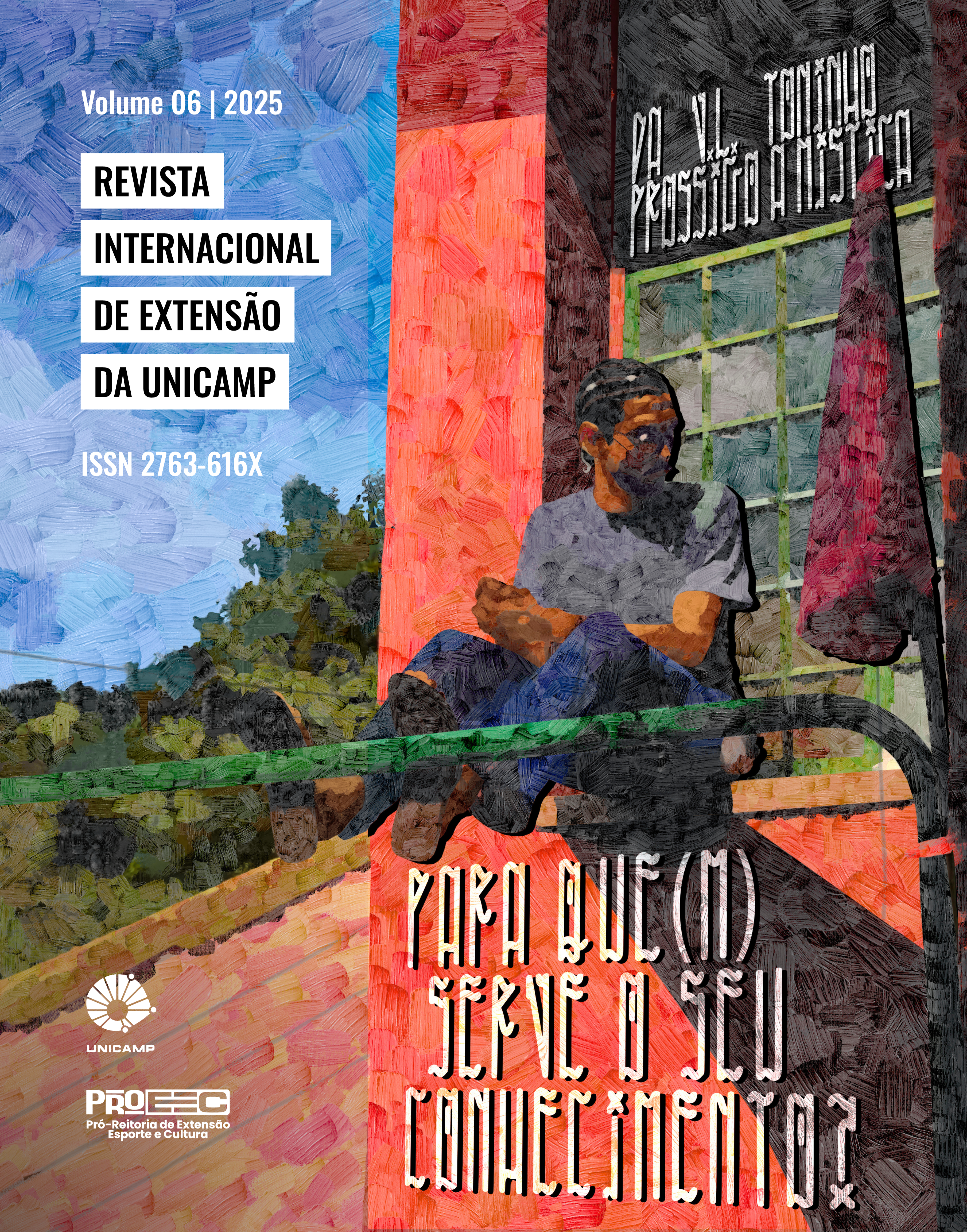Abstract
The Interdisciplinary Research and Community Outreach Program “Olhos no Futuro” is part of Unicamp’s Sustainable Campus and, through the Interdisciplinary Project for Social Intervention at School, has ten (10) projects that seek to discuss about Sustainable Development Goals (SDGs) at State School Dr. Telêmaco Paioli Melges, located in the city of Campinas. This article presents and discusses the implementation of the ReciclaMente Project, which is oriented towards the promotion of SDG 12: Sustainable Production and Consumption. Based at Geosciences Institute, ReciclaMente Project focuses on the disposal and treatment of waste, through interdisciplinary pedagogical practices, developing actions to (re)think actions to preserve the environment and promote the decent work and the value of waste. A methodological approach considers teaching through research as a principle for learning and promoting the extension curriculum. It is understood that it is impossible to carry out this subproject without considering the space in which human relations, production and consumption take place, as well as the neighbourhood, the city and, more specifically, the municipality of Campinas, which exerts and suffers pressure from the global system. Finally, and in line with the idea of SDGs integrity, ReciclaMente seeks to promote an approximation with the local reality of the school and its surroundings and cooperation between interested social actors capable of building new paradigms of consumption, work, education and production, such as workers and entities involved with urban waste management.
References
BRASIL, Lei N° 12.305 de 02 de agosto de 2010 - Política Nacional de Resíduos Sólidos (PNRS). Disponível em: <: http://www.planalto.gov.br/ccivil_03/_ato2007-2010/2010/lei/l12305.htm > Acesso 2023.
Ferreira, D.A., Cipriano, J.G.I., da Silva, L.C.P., de Paula, A.I.S. (2021). Programa Interdisciplinar de Extensão Comunitária Olhos no Futuro: Caminhos para Implementação dos Objetivos do Desenvolvimento Sustentável (ODS). In: da Silva, L.C.P. et al. Campus sustentável: um modelo de inovação em gestão energética para a América Latina e o Caribe (pp. 254-270). Rio de Janeiro: Synergia.
Ferreira, L. H e Aragão, A. M. F. Coma tudo, mas sem saborear: a relação indissociável entre fazer e pensar a docência. In VALLE, Luiza Elena L. Ribeiro do (ORG), Neurociências e Saúde Educacional: vencendo limites. Rio de Janeiro: Wak Editora.
ONU. Agenda 2030. Transformando Nosso Mundo: A Agenda 2030 para o Desenvolvimento Sustentável. Tradução: Centro de Informações das Nações Unidas para o Brasil, 2015. Disponível em: https://nacoesunidas.org/pos2015/agenda2030/. Acesso 2023.
Reike, D.; Vermeulen, W.J.V.; Witjes, S. The circular economy: New or Refurbished as CE 3.0? Exploring Controversies in the Conceptualization of the Circular Economy through a Focus on History and Resource Value Retention Options. In: Resources, Conservation & Recycling 135, 2018.

This work is licensed under a Creative Commons Attribution-NonCommercial 4.0 International License.
Copyright (c) 2025 International Journal of Outreach and Community Engagement


